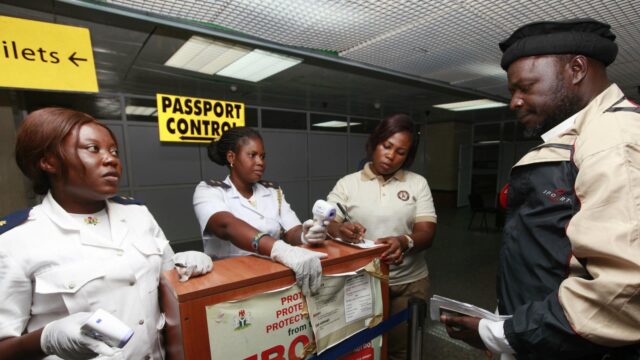
Gift Joseph Okpakorese
The American agency responsible for consular international affairs has recently issued a guide and travel advisory to Nigeria, as they inform the US citizens to reconsider any plans of traveling to Nigeria due to banditry, terrorism, civil unrest, kidnapping, and maritime crime.
While drawing the attention of Americans living within and outside the U.S. to this vital information, the Department of State, Bureau for Consular Affairs, also stated that, if it becomes expedient for anyone to travel to Nigeria, then certain places with a higher risk of danger, must be outrightly avoided.
Furthermore, as a result of the ongoing, global coronavirus pandemic which has recently been discovered to have developed a new and dangerous variant as revealed by medical experts, the Department of State’s COVID-19 has also warned citizens as well to be wary and careful of all international travel plans.
Accordingly, the Centers for Disease Control and Prevention (CDC) published a Level 1 Travel Health Notice for Nigeria, due to COVID-19, indicating a low level of COVID-19 in the country. However, they advised residents to visit the Embassy’s COVID-19 page for more information on COVID-19 in Nigeria.
While the coronavirus pandemic may not be severe as witnessed in other parts of the world, they, however, listed several places not to travel to which includes;
Borno, Yobe, and northern Adamawa states due to insurgency banditry, terrorism, and kidnapping.
Bauchi, Gombe, Kaduna, Kano, Katsina, and Zamfara states due to kidnapping
Coastal areas of Akwa Ibom, Bayelsa, Cross River, Delta, and Rivers states (except for Port Harcourt) due to crime, kidnapping, and maritime crime
A summary of how these violent crimes were being perpetuated was also explained and these included;
Armed robbery, assault, carjacking, kidnapping, hostage-taking, banditry, and rape. All these are regular occurrences. experienced all over the country.
More so, Kidnappings for ransom occur frequently, often targeting dual national citizens who have returned to Nigeria for a visit, as well as U.S. citizens with perceived wealth. Kidnapping gangs have also stopped victims on interstate roads.
Terrorists continue plotting and carrying out attacks in Nigeria, especially in the Northeast. Terrorists may attack with little or no warning, targeting shopping centers, malls, markets, hotels, places of worship, restaurants, bars, schools, government installations, transportation hubs, and other places where crowds gather. Terrorists are known to work with local gangs to expand their reach.
There is civil unrest and low-level armed militancy in parts of Southern Nigeria, especially in the Niger Delta region. Armed criminality, including kidnapping and maritime crime, is also pervasive in this region. Violence can flare up between communities, as well as between farmers and herders in rural areas.
The U.S. government has limited ability to provide emergency services to U.S. citizens in many areas of Nigeria due to security conditions. As such, anyone who wishes to travel to Nigeria must be properly grounded on the current situation of happenings.
U.S. Citizens are hereby advised to consult the U.S. Embassy’s web page and visit the CDC’s webpage on Travel and COVID-19. Meanwhile, the summary of the guidelines are as follows;
-Carry proper identification, including a U.S. passport with a current Nigerian visa, if needed.
-Use caution when walking or driving at night.
-Keep a low profile.
-Review travel routes and times to vary your predictability.
-Do not physically resist any robbery attempt.
-Be extra vigilant when visiting banks or ATMs.
-Monitor local media for breaking events, and be prepared to adjust your plans.
-Be aware of your surroundings.
-Stay alert in locations frequented by Westerners.
-Avoid demonstrations and large political gatherings.
-Review your security plans.
-Have evacuation plans that do not rely on U.S. government assistance.
-Establish a “proof of life” protocol with your loved ones, so that if you are taken hostage, your loved ones know specific questions (and answers) to ask the hostage-takers to be sure that you are alive (and to rule out a hoax).
-Enroll in the Smart Traveler Enrollment Program (STEP) to receive Alerts and make it easier to locate you in an emergency.
-Review the Crime and Safety Reports for Nigeria.
-Prepare a contingency plan for emergencies.
-Review the Traveler’s Checklist.
It is imperative to state that insurgents within the Northern region of the nation routinely target humanitarian camps, security forces, churches, schools, mosques, government installations, educational institutions, entertainment venues, and road travelers. This ugly trend has resulted in an estimated number of more than 2million Nigerians reportedly displaced as a result of the violence in Northeast Nigeria.
Below is the available contact information for assistance for U.S. Citizens.
U.S. Embassy Abuja
1075 Diplomatic Drive
Central District Area, Abuja
Nigeria.
Telephone
+(234) (0) (9) 461-4328 (Monday through Thursday, 7:30 a.m. to 4:30 p.m.; Friday, 7:30 a.m. to 1:30 p.m.)
Emergency
+(234) (0) (9) 461-4000







